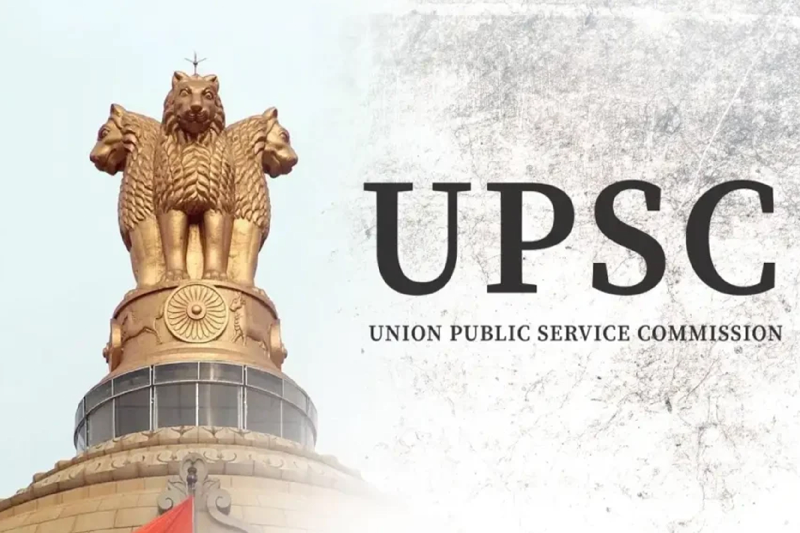
UPSC’s Email Alert Initiative: Bridging the Gap Between Institutions and Recruitment Opportunities
In a transformative step aimed at boosting awareness and improving participation in its recruitment processes, the Union Public Service Commission (UPSC) has rolled out a targeted email alert system. Designed to address disparities in candidate reach and suitability, this initiative allows universities, professional bodies, and educational institutions to stay updated on job vacancies relevant to their academic and professional expertise.
By introducing this proactive communication channel, the UPSC hopes to attract a broader, better-informed pool of candidates for Group A and Group B gazetted posts across ministries, departments, and Union Territories. The move marks a strategic push toward increasing institutional involvement and improving candidate visibility in public sector job opportunities.
The Rationale: Addressing Low Participation and Suitability Gaps
The UPSC, which annually processes over 200 recruitment proposals, has encountered challenges in sourcing suitable candidates for several advertised posts. Despite multiple dissemination channels like the official website, Employment News, and LinkedIn, application numbers for niche positions have remained low.
Dr. Ajay Kumar, the newly appointed UPSC Chairman and former Defence Secretary, explained that vacancies often go unfilled due to lack of awareness. In some cases, interview boards have had to render positions infructuous due to a complete absence of suitable applicants. “Sometimes the posts remained vacant or become infructuous during the interview stage as suitable candidates are not found,” he said.
This email alert system aims to bridge that gap by delivering timely and domain-specific information directly to the inboxes of relevant institutions. It is a decisive response to the underlying issue of inadequate outreach, especially for specialized posts in fields such as medicine, law, engineering, finance, forensic audit, and education.
How the Email Alert System Works
Under this new system, UPSC will send curated recruitment alerts to universities, accredited professional associations, and other recognized academic bodies. These emails will include information about current job openings tailored to the institution's focus areas, ensuring that opportunities are not overlooked by qualified candidates.
Institutions interested in subscribing to these alerts can send an email request to:
📩 ra-upsc@gov.in
📌 With the subject line: “Subscription Request – UPSC Recruitment Alerts.”
This ensures a simple onboarding process for stakeholders looking to stay in the loop and actively guide their students, alumni, or members toward prestigious public service careers.
A Focused Effort to Expand Institutional Exposure
In addition to expanding the reach of its recruitment ads, the Commission is also encouraging various government ministries and departments to amplify the dissemination. These departments are being urged to post UPSC job notices on their official websites and social media platforms, thereby multiplying the touchpoints through which candidates might encounter relevant job information.
Moreover, UPSC is exploring the integration of RSS feeds into its website, allowing subscribers to receive real-time updates through automated channels. Future outreach may also involve leveraging public broadcasters and news agencies to reach a wider audience, especially in remote or underserved regions.
A Call to Ministries for Early Requisition Submission
To further streamline the recruitment cycle, Dr. Ajay Kumar emphasized the importance of ministries submitting their hiring requests well in advance. UPSC has recommended that departments ideally send requisitions between January and March. Early submissions not only allow the Commission to combine similar posts for common written tests but also facilitate more efficient scheduling and execution of recruitment drives.
This forward-thinking approach aims to minimize delays and ensure that the recruitment calendar aligns with the academic and administrative cycles of government institutions and departments.
Why This Initiative Matters for Institutions and Candidates
The UPSC’s new email alert service is more than a communication upgrade; it’s a structural shift aimed at ensuring greater inclusivity and effectiveness in India’s public sector hiring processes. By directly involving educational and professional institutions in the loop, UPSC empowers them to play an active role in guiding their students and members toward meaningful career paths.
This move also serves the dual purpose of democratizing access to opportunities and enhancing the quality of candidates who apply. In fields where domain-specific expertise is essential, the likelihood of attracting the right talent increases significantly when the information reaches the right place—at the right time.
Looking Ahead: A Smarter, More Connected UPSC
With over 240 recruitment proposals already received in 2025 alone, spanning a wide range of sectors, the need for a system that effectively links talent with opportunity has never been more critical. The UPSC’s email alert system is an example of how digital tools can be leveraged to improve transparency, reach, and responsiveness in governance.
As the Commission continues to evolve its outreach strategies—through social media, email, RSS feeds, and partnerships with ministries—the goal remains clear: to ensure that every eligible candidate is informed, prepared, and empowered to serve the nation.
Conclusion: A Timely Innovation with Long-Term Impact
In essence, UPSC’s email alert initiative marks a critical step in modernizing how recruitment information is disseminated. It recognizes the role institutions play in shaping career pathways and ensures they are no longer passive recipients but active collaborators in the public sector recruitment ecosystem.
As UPSC widens its digital footprint and streamlines its operations, the Commission sets a new benchmark in accessible, inclusive, and timely public service recruitment.



